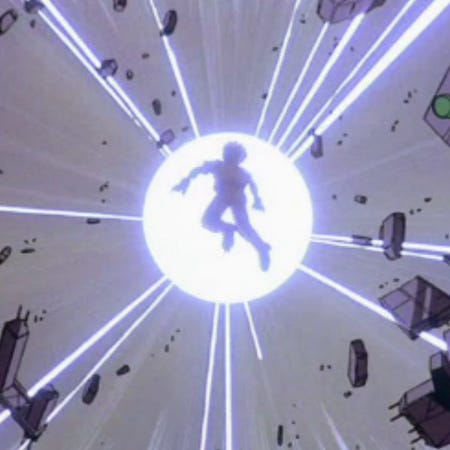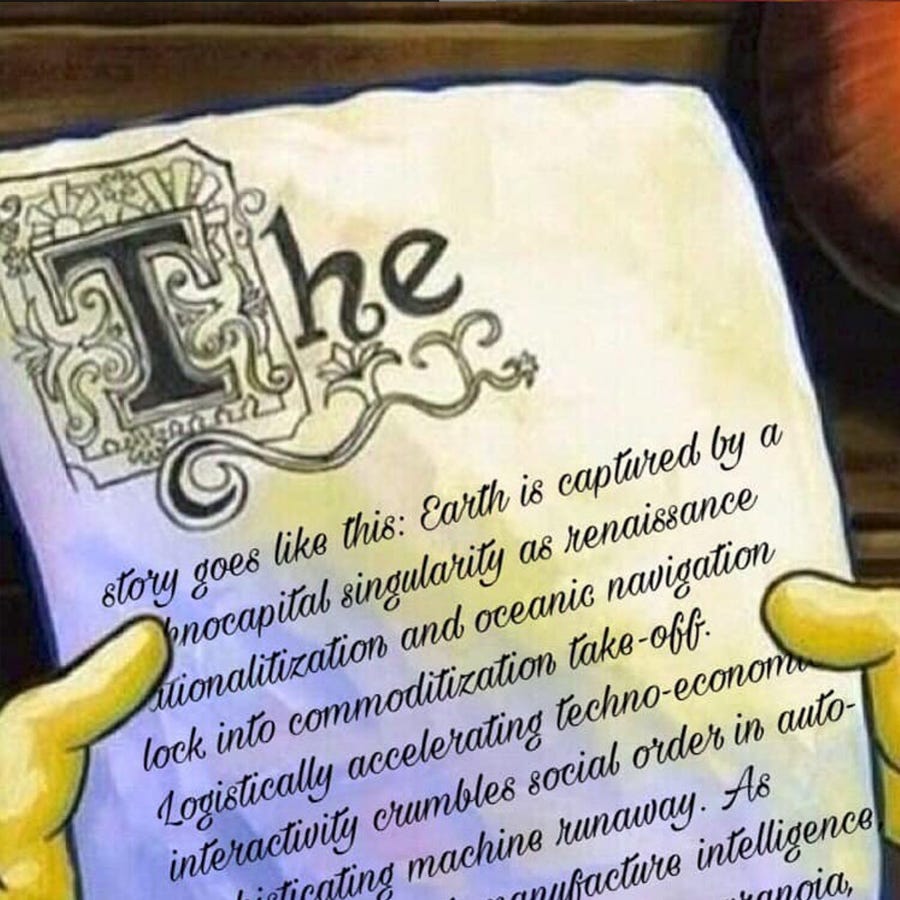This interview is part of an on-going research project into the political fringe of Gen Z social media spaces. The contents do not represent my opinions as a writer and should not be considered an endorsement.
Accelerationist spaces zigzag between complex academic theory and home-brewed internet folklore. Sometimes it can be hard to tell which is which. When I began this research, I was struck by the young ages of these users. While their grasp of theory may feel loose or unsure, they were often years more advanced the the students I found myself teaching in a university setting.
U.accelerate
age 19
[undisclosed]
Instagram
***
I’m what they call an unconditional accelerationist. I believe that we should accelerate no matter what the acceleration leads to. I don’t really have one vision for the future other than the process of acceleration which manifests itself through struggle and the overall progression or deterritorialization of society.
Who are your biggest influences?
I would say Marx is a big influence, Stirner to a degree, Gilles Delueze and Felix Guattari are a huge influence, Mark Fisher, Nick Land, Georges Bataille, and Jean Baudrillard to a degree.
When did you first learn about or start visiting online political communities?
I would say about 5 years ago [age 14] although I have only been particularly active on this platform and writing for about the past two years.
What was your ideology before entering these spaces?
Or how have your views evolved since you started participating?
Before I began researching I was pretty much a run of the mill social democrat.
What changes do you think we are likely to see in the next 10 years?
It's hard to predict these things but in the next ten years we are likely to see a greater impact from global warming including natural disasters possibly famines and unrest due to this, a greater integration of technology into the physical world as well as increasingly decentralized human input into the cyber world as a reaction to the growth and increasing censorship from corporate tech. Economic inequality has been and likely will continue to increase in the next ten years. Economic powerhouses such as China and the U.S. will start to stagnate (the U.S. is already stagnating) as capital becomes less organized by nations. Political extremism will thrive as it is beginning to now on both the far left and the far right, liberals/conservatives are going to make vain attempts to appeal to this growing influence but ultimately traditional political institutions will lack the decentralized, integrated social networks through which extremists operate. There will be a spectacle of extremism propagated by the political status quo in order to neutralize them but extremism is always expanding. I think that the next ten years will consist of unrest, turbulence, and bourgeois damage control.
What changes do you think we are likely to see in the next 40 years?
I understand that what I would like to see isn't necessarily going to happen but the best case scenario for me would be the end of life as a function within a system of exchange so it transforms into life as an input into a social survival network, this requires the collapse of capitalism.
What changes do you want to see in the next 10 years?
I would like extremism to become increasingly violent, particularly anti-capitalists, I would like the process of deterritorialization to accelerate as the political status quo continues to recuperate only for groups to deterritorialize from their liberalized counterparts. Violence is one of the primary ways this occurs.
Keep reading with a 7-day free trial
Subscribe to Doomscroll to keep reading this post and get 7 days of free access to the full post archives.





